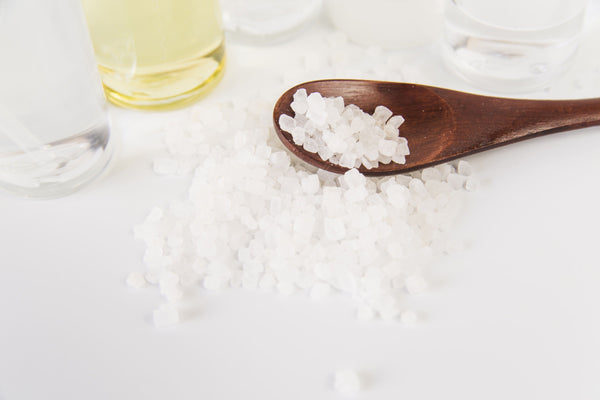
Fulvic Acid

Fulvic Acid
Fulvic acid is a chemical substance made when bacteria in the soil break down plant matter over long periods. It is found in clay, sand, mountain rocks, and mud, and its qualities vary depending on where it is located1. Shilajit, a sticky tar-like material found in the Himalayas, is the most common source of fulvic acid2. Shilajit has been used in traditional ayurvedic treatment in India and Nepal for thousands of years. Fulvic acid contains a variety of minerals, vitamins, and amino acids.
Read on to learn how it can be beneficial to your body.
Reduces Inflammation
Inflammation is your body's natural response to injury, infection, or irritation, resulting in swelling and discomfort. However, uncontrolled and prolonged inflammation can contribute to serious conditions like arthritis, heart disease, and diabetes. Fulvic acid has outstanding anti-inflammatory properties. Research studies have shown that fulvic acid can prevent the release of inflammatory chemicals, protecting the immune system and reducing inflammation-related heart disease and arthritis3.
Inflammation can also result in the release of cytokines in your body, which are chemical messengers that can disrupt cholesterol metabolism and raise its level. Research on animals suggests that fulvic acid may decrease LDL (bad) cholesterol, while a study of 30 people indicates it may increase HDL (good) cholesterol4,5.
Powerful Antioxidant
The antioxidant properties of fulvic acid make it a potent free-radical scavenger. Due to its molecular structure, it can donate or accept electrons, neutralizing harmful free radicals that cause oxidative stress and cellular damage. This way, fulvic acid may lower the risk of chronic diseases and aging and promote longevity.
With its impressive antioxidant properties, fulvic acid not only boosts immunity but also acts as a body's natural detoxifier. It does this by binding to dangerous heavy metals like cadmium, lead, and copper and expelling them out of the body through urine and feces6.
Enhances Nutrient Absorption and Gut Health
Efficient nutrient absorption is necessary for your body to effectively utilize nutrients, gain energy, and maintain overall health. Fulvic acid may help you get the most out of your food and supplements by making it easier for your body to absorb nutrients. It does this by binding to minerals, aiding in their cellular transport, improving digestive enzymes, and balancing gut bacteria. Studies show it can also benefit digestive issues like irritable bowel syndrome (IBS)7.
Improves Mental Clarity
Fulvic acid also impresses with the ability to improve memory and enhance cognitive function. Research has indicated that fulvic acid significantly inhibits the release of proteins, contributing to the acceleration of neurological disorders like Alzheimer's disease8.
Food Sources of Fulvic Acid
You can find notable amounts of Fulvic acid in foods like radishes, beets, parsnips, carrots, and turnips, particularly when grown in nutrient-rich soils. It is also found in large amounts in seaweed and kelp grown in large natural water sources.
Adults can safely take 0.5 ounces of fulvic acid for daily supplementation9.
Fulvic acid is a naturally occurring chemical produced by soil microorganisms during the decomposition of plant tissue. It has amazing anti-inflammatory and antioxidant properties. Furthermore, it enhances nutrient absorption, promotes gut health, and can improve brain function.






